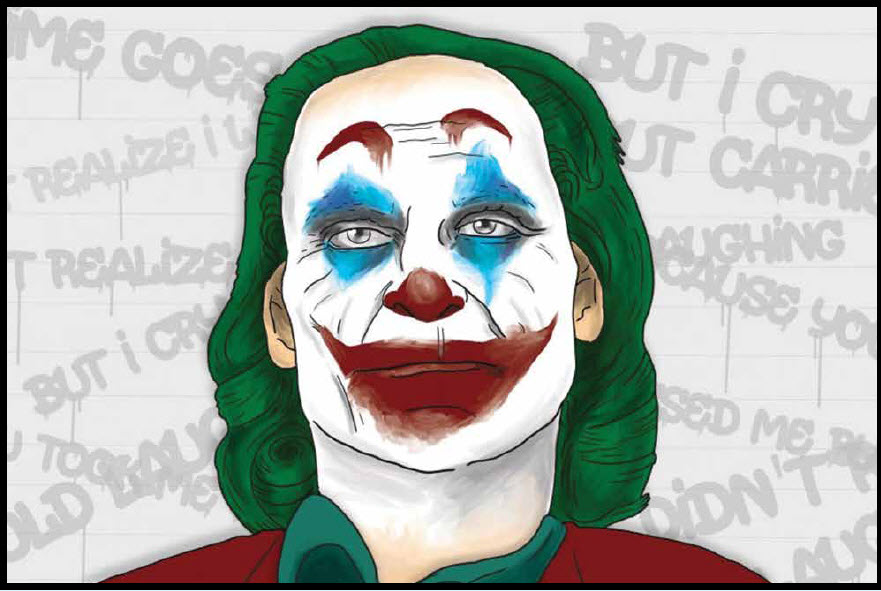The Masks Among Us
 By: Rosemary Dewar
By: Rosemary Dewar
The latest cinema rendition of the Joker, which depicts the origin of the villain sent political and religious communities reeling. It was as though this was a brand new societal contagion that couldn’t be quarantined. Art has two functions: to inspire or to reveal. Furthermore, villains are rarely a source of inspiration for people who aim to improve themselves. Heroes are, by far, more inspirational for any society, and are more revered in history. There are many fictional, villainous characters that wear masks. There was nowhere near the same level of outrage directed at the Phantom of the Opera. There were no editorials saying the Phantom was a depiction of the patriarchy, and that the musical would inspire the emotional abuse of vulnerable young women and children. So what changed? Society continues to find fault where there is none, in order to deflect from what ought to be dealt with in their lives.

The Joker’s character as a whole is a man who has been dealt a painful hand. His surroundings keep making it harder for him to overcome his circumstances. In the end, the Joker blames everything on his environment, and relinquishes his responsibility to try something different in order to change the hand he has been dealt.
In the movie, The Pursuit of Happyness (based on a true story), we see Chris Gardner, an African American, experience a year of homelessness after his wife leaves him. Chris is forced to sell a medical product that no one wants in order to care for his son. Mr. Gardner is in and out of homeless shelters, and during that time was mugged as well. He is given a one in a million chance to intern at E.F. Hutton for free. He manages to find favor among his supervisors, and he triumphs over his hardships. There were no editorials stating that Chris Gardner should not have been put in such desperate straits before finding success. Society owed him nothing but a fair shot, which was given to him. Chris Gardner made unwise decisions in his life, but eventually he stopped making poor decisions and made a better life for himself and his son.
Another well known masked villain is the Phantom in The Phantom of the Opera. He too had a difficult life filled with disease and abuse. Instead of being grateful for the one friendship he had been able to maintain, he channels all of his talents toward manipulating, frightening, and then murdering those around him. There was no one asserting that the movie in 2004 was going to inspire disenfranchised men to put other members of society at high risk for attacks. It would have been as absurd then as it is now with respect to the Joker.
The point of masked characters in literature is to hold a mirror up to you. It is a challenge to keep yourself in check, and to make you aware of your own dark impulses in order for you to have an aversion to them. For the vast majority of the Westernized civil societies, that is what stories about villains do.
It is arrogant to think that any civic advisory board is capable of effectively censoring a society enough in order to shape how members of that society will behave. They will end up censoring everything, as many influencers already attempt to do. If society can hold fast to a set of values, it will have a better chance of self-regulating as long as government manages to have a comparative level of self-control.
By: Rosemary Dewar